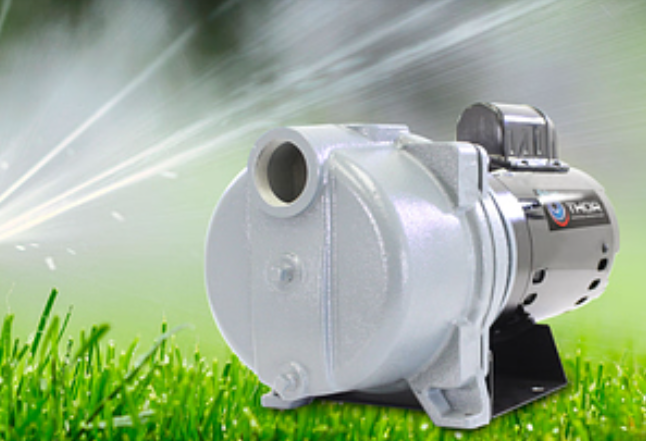How to Calculate Water Flow Requirements for Your Irrigation Pump

Irrigation is a crucial component of modern agriculture and landscaping, ensuring that plants receive the necessary moisture for healthy growth. To achieve efficient irrigation, it’s essential to calculate the water flow requirements for your irrigation pumps accurately. This calculation ensures that your pump can deliver an adequate supply of water to your crops or garden, preventing under or overwatering. This article will guide you through the process of calculating water flow requirements for your irrigation pump.
Why Accurate Calculations Are Important
Before delving into the calculations, it’s essential to understand why accurate water flow calculations are crucial for your irrigation system:
1. Prevent Underwatering or Overwatering
Inaccurate flow calculations can lead to underwatering or overwatering, both of which can harm your plants. Underwatering can cause stress and reduced crop yields while overwatering can lead to root rot and other diseases.
2. Optimise Pump Efficiency
Calculating water flow requirements allows you to select the right pump size for your system. An oversized pump can lead to energy wastage, while an undersized pump may not meet your water needs efficiently.
3. Save Water and Resources
Precise calculations help you use water efficiently, conserving this valuable resource and potentially reducing your water bill.
Steps to Calculate Water Flow Requirements
Now, let’s walk through the steps to calculate the water flow requirements for your irrigation pump:
1. Determine Your Irrigation Area
First, you need to measure the area you plan to irrigate. Measure the length and width of the area in feet and multiply them to calculate the square footage. For irregularly shaped areas, divide them into smaller, regular shapes and calculate each one separately.
2. Determine the Application Rate
The application rate is the amount of water your plants need in inches per hour. This rate varies depending on the type of plants you’re growing. Consult agricultural or horticultural resources or experts to determine the appropriate application rate for your crops or garden.
3. Calculate Water Requirement
Multiply the square metres of your irrigation area by the application rate to calculate the water requirement in litres per hour (LPH). To convert from square metres to square millimetres, multiply by 1,000,000.
Water Requirement (LPH) = Irrigation Area (sq. metres) x Application Rate (millimetres per hour) x 1,000,000
4. Adjust for Pump Efficiency
No pump is 100% efficient. Pumps have efficiency ratings, often expressed as a percentage. To find the actual flow rate you need from your pump, divide the water requirement by the pump efficiency percentage.
Required Flow Rate (GPH) = Water Requirement (GPH) / Pump Efficiency (%)
5. Account for Pressure and Elevation
If your irrigation system requires a specific pressure or if you are pumping water uphill, you need to account for these factors when selecting a pump. Pressure requirements can affect the flow rate, so be sure to consider them in your calculations.
6. Select the Right Pump
Now that you have calculated the required flow rate, choose a pump that can meet or exceed this rate. Pay attention to the pump’s specifications, including flow rate (in LPH or litres per minute) and pressure rating. Ensure it matches your system’s needs.
7. Install and Monitor
After selecting the pump, install it in your irrigation system and monitor its performance regularly. Adjust settings as needed to maintain optimal water flow and pressure.
Conclusion
Calculating water flow requirements for your irrigation pumps is a critical step in ensuring the health and productivity of your plants while conserving water and resources. By following the steps outlined in this article, you can make informed decisions when selecting and operating your irrigation pump, leading to a more efficient and sustainable irrigation system for your agricultural or landscaping needs. Remember that consulting with irrigation experts or professionals can provide valuable insights specific to your unique circumstances and ensure the success of your irrigation project.





